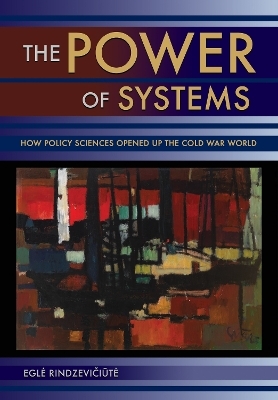
The Power of Systems
How Policy Sciences Opened Up the Cold War World
Seiten
2025
Cornell University Press (Verlag)
978-1-5017-8220-6 (ISBN)
Cornell University Press (Verlag)
978-1-5017-8220-6 (ISBN)
- Noch nicht erschienen (ca. März 2025)
- Portofrei ab CHF 40
- Auch auf Rechnung
- Artikel merken
In The Power of Systems, Eglė Rindzevičiūtė introduces readers to one of the best-kept secrets of the Cold War: the International Institute of Applied Systems Analysis (IIASA), an international think tank established by the US and USSR to advance scientific collaboration.
From 1972 until the late 1980s, IIASA was one of the very few permanent platforms where policy scientists from both sides of the Cold War could work together to articulate and solve world problems. A rare zone of freedom, communication, and negotiation.
East-West scientists co-produced computer simulations of the long-term world future, using global modeling to explore the possible effects of climate change and nuclear winter. Their concern with global issues also became a vehicle for transformation inside the Soviet Union. The Power of Systems explores how computer modeling, cybernetics, and the systems approach challenged Soviet governance by undermining the linear notions of control on which Soviet governance was based and creating new objects and techniques of government.
From 1972 until the late 1980s, IIASA was one of the very few permanent platforms where policy scientists from both sides of the Cold War could work together to articulate and solve world problems. A rare zone of freedom, communication, and negotiation.
East-West scientists co-produced computer simulations of the long-term world future, using global modeling to explore the possible effects of climate change and nuclear winter. Their concern with global issues also became a vehicle for transformation inside the Soviet Union. The Power of Systems explores how computer modeling, cybernetics, and the systems approach challenged Soviet governance by undermining the linear notions of control on which Soviet governance was based and creating new objects and techniques of government.
Eglė Rindzevičiūtė Associate Professor in Criminology and Sociology at Kingston University, London. She is the author of The Will to Predict and coeditor of The Struggle for the Long-Term in Transnational Science and Politics.
| Erscheint lt. Verlag | 15.3.2025 |
|---|---|
| Zusatzinfo | 8 Halftones, black and white |
| Verlagsort | Ithaca |
| Sprache | englisch |
| Maße | 152 x 229 mm |
| Gewicht | 454 g |
| Themenwelt | Geschichte ► Allgemeine Geschichte ► Zeitgeschichte |
| Sozialwissenschaften ► Politik / Verwaltung ► Europäische / Internationale Politik | |
| ISBN-10 | 1-5017-8220-7 / 1501782207 |
| ISBN-13 | 978-1-5017-8220-6 / 9781501782206 |
| Zustand | Neuware |
| Informationen gemäß Produktsicherheitsverordnung (GPSR) | |
| Haben Sie eine Frage zum Produkt? |
Mehr entdecken
aus dem Bereich
aus dem Bereich
Gewalt, Umwelt, Identität, Methode
Buch | Softcover (2024)
Spector Books OHG (Verlag)
CHF 49,95
wie Freud im Kollektiv verschwand
Buch | Hardcover (2024)
Klett-Cotta (Verlag)
CHF 34,95


